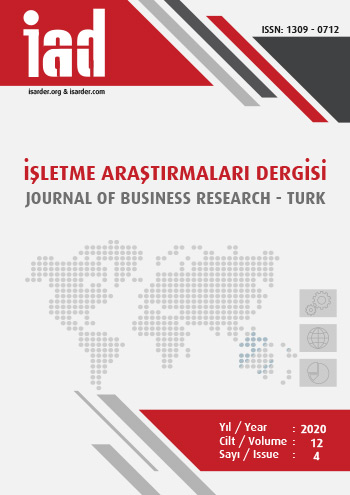Otel İşletmelerinde Gıda İsrafına Yönelik Davranışların İşletme Karlılığına Etkisi: Eskişehir Örneği
The Effect of Behaviors Regarding Food Waste on Business Profitability in Hotel Businesses: The Case of Eskişehir
Author(s): Yağmur Kurt, Mahmut Hamil Nazik, Alper IşınSubject(s): Business Economy / Management, Agriculture, Tourism
Published by: Orhan Sağçolak
Keywords: Food waste; Hotels; Business profitability;
Summary/Abstract: Purpose – The aim of this study is to determine the knowledge, opinions and behaviors of the kitchen personnel working in hotel businesses towards food waste and to determine the effects of these behaviors on the profitability of the business. In line with this purpose, it is aimed to prevent food waste and increase business profitability by creating awareness of food waste among employees. Design/methodology/approach – The research is a descriptive self-transfer study. The data of self-transfer studies are collected by obtaining information from the individuals in the sample (Bir, 1999). In the descriptive model, the current situation about a subject is investigated. Descriptive research can be done in two different ways. These; It is self-transfer and observation research. The data of self-transfer studies are collected by obtaining information from the individuals in the sample. Descriptive research data are analyzed using scientific statistics (Kırcaali, 1997, p. 7). Findings – Research findings show that the staff working in the kitchen departments of hotel businesses have a high level of knowledge about food waste. When the opinions of the participants on food waste were examined, it was determined that waste was a negative situation and the majority of them were aware of this issue. In addition, a statistically significant difference emerged when the knowledge levels of the participants on food waste were compared according to their previous training in cooking. In this case, it has been determined that the knowledge level of the people who have received culinary training is higher. Discussion – According to the information obtained from food made in studies and literature on waste in Turkey it is often not done enough work on this issue. The knowledge and experience of kitchen workers and their workload and whether they are trained in cooking play a decisive role in food waste. The attitudes and behaviors of employees towards waste are one of the important factors that directly affect the profitability of the company. It is very important for employees to raise awareness about this issue.
Journal: İşletme Araştırmaları Dergisi
- Issue Year: 12/2020
- Issue No: 4
- Page Range: 4365-4379
- Page Count: 15
- Language: Turkish

